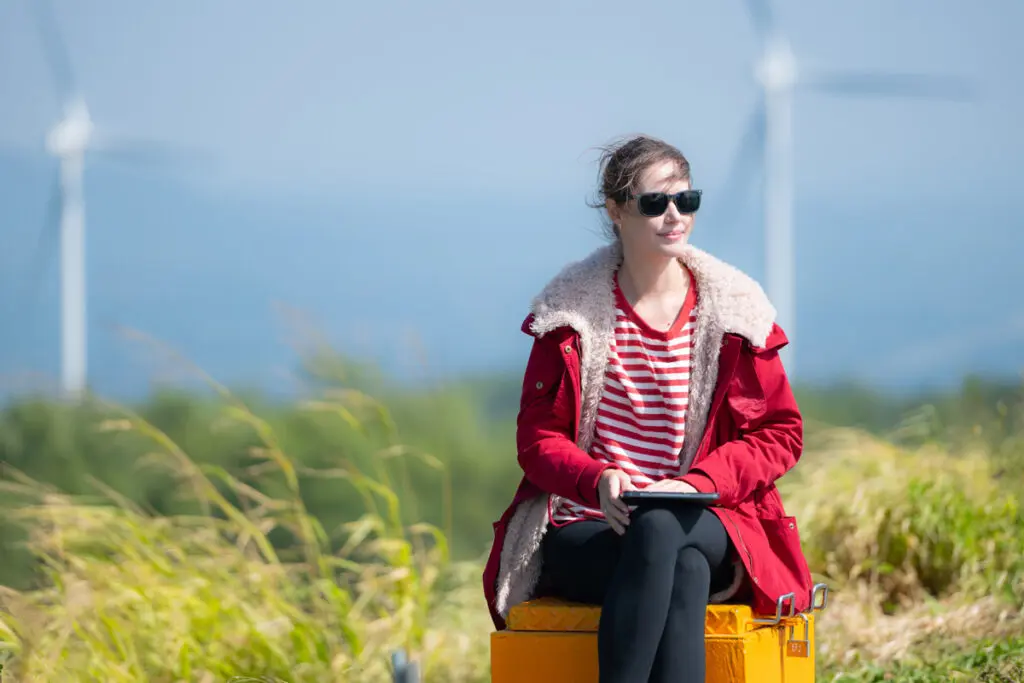
As the globe increasingly recognises the urgency of addressing climate change and environmental degradation, Ireland stands at the forefront of sustainable practices and innovative solutions. With a growing commitment to achieving net-zero emissions by 2050, the future of sustainability in Ireland is gearing towards a multifaceted transformation. This article delves into key trends in sustainability for 2024 and beyond, highlighting the profound changes set to shape Ireland’s environmental landscape.
One of the most significant trends shaping the future of sustainability in Ireland is the aggressive push towards renewable energy sources. The Irish government has set ambitious targets to generate 70% of its electricity from renewable sources by 2030, predominantly through wind and solar power.
In 2024, we expect to see a surge in renewable energy projects, particularly offshore wind farms. The Irish Sea’s potential for wind energy is enormous, and numerous projects are in the pipeline. As technology advances and investment continues to grow, Ireland is poised to become a leader in renewable energy generation, significantly reducing its carbon footprint in the process.
The concept of a circular economy—where resources are reused, refurbished, and recycled—will gain momentum in Ireland over the coming years. In 2024, businesses will increasingly adopt circular practices to minimise waste and reduce resource consumption.
To facilitate this shift, the Irish government is implementing various strategies to support businesses in transitioning to circular models. These include incentives for recycling, promoting eco-design in product development, and encouraging consumers to opt for sustainable products. As organisations realise the economic benefits of embracing a circular economy, we can expect a notable shift in consumer behaviour and corporate responsibility.
Agriculture is a significant sector in Ireland, and the move towards sustainable farming practices is gaining traction. The popularity of organic farming, regenerative agricultural practices, and local food production is set to soar in 2024.
Farmers are increasingly adopting sustainable methods that prioritise soil health, biodiversity, and water conservation. Initiatives like the EU’s Common Agricultural Policy (CAP) will also play a crucial role in incentivising farmers to engage in environmentally friendly practices. Furthermore, the rise of urban agriculture and community gardens will promote local food sourcing, reducing the carbon footprint associated with food transportation.
As Ireland continues to urbanise, the need for sustainable building practices becomes ever more critical. In 2024, we predict a significant rise in green building initiatives that prioritise energy efficiency and sustainability.
Building regulations are increasingly favouring eco-friendly materials, innovative design principles, and energy-efficient technologies. Moreover, the implementation of passive house standards—which focus on minimising energy use for heating and cooling—will become more commonplace. By creating sustainable living spaces that promote environmental wellbeing, architects and developers are redefining what it means to build in Ireland.
The transport sector is one of the largest contributors to greenhouse gas emissions in Ireland. In response, 2024 will see a robust shift towards electric mobility and sustainable transport options. The Irish government aims to have a quarter of all cars on the road be electric by 2030, with significant strides being made in EV infrastructure development.
Investment in electric vehicle (EV) charging networks, along with incentives for electric car ownership, are set to increase. Additionally, public transport systems are evolving to be more sustainable, with plans for expanding electric buses and enhancing cycling and pedestrian pathways in urban areas.
Public awareness and community engagement in sustainability are critical factors driving Ireland toward a greener future. In 2024, educational efforts surrounding sustainability are expected to escalate, empowering communities to take action on environmental issues.
Initiatives aimed at raising awareness about the importance of sustainable practices will proliferate, encouraging citizens to reduce their environmental impact through lifestyle changes. Be it through local clean-up events, workshops on sustainable living, or promoting responsible consumption, community-led efforts will play a pivotal role in fostering a culture of sustainability throughout Ireland.
The integration of technology is advancing the sustainability agenda in Ireland at an unprecedented rate. In 2024, we will likely see a surge in digital solutions aimed at enhancing energy efficiency and reducing waste. Innovations in sensor technologies, data analytics, and artificial intelligence are transforming how businesses operate sustainably.
For instance, smart grids will enable more efficient energy distribution and consumption monitoring, while agricultural technology such as precision farming will optimise resource use in agriculture. As organisations leverage technology to drive sustainability, Ireland will become a testbed for innovative solutions that could be adopted globally.
The future of sustainability in Ireland is set to unfold with incredible potential, driven by ambitious policies, community engagement, and technological advancements. The trends outlined above indicate a collective effort towards crafting a more sustainable environment that benefits both people and the planet.
In 2024 and beyond, Ireland is not just responding to global challenges; it is actively positioning itself as a leader in sustainable practices. By embracing a renewable energy future, promoting circularity, adopting sustainable farming, enhancing green building practices, and engaging communities, the nation is paving the way for a more sustainable and resilient future—one that other countries may look to emulate.
As we navigate the complexities of sustainability, Ireland’s journey offers vital insights and hopeful lessons, setting a benchmark in the quest for a healthier planet.
Copyright © 2025. All Ireland Sustainability
Webdesign & Development Northern Ireland 2b:creative
Entries have now closed. We would love it if you could join us for our awards evening on the 24th of October at La Mon, Hotel, Belfast!